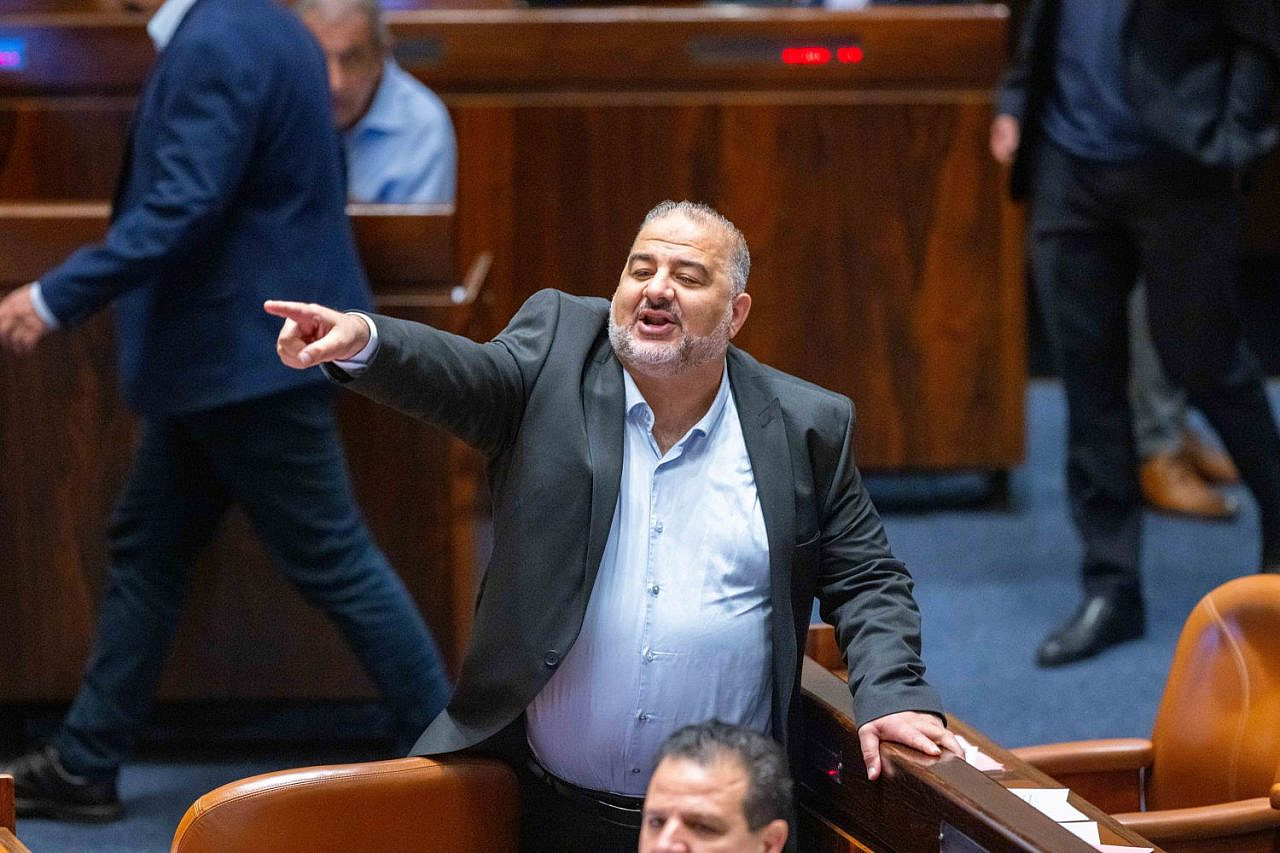Contrary to popular belief, Arab parties have been backing prime ministerial candidates for decades. But what did they gain from the political game?

Members of the Joint List arrive for a meeting with Israeli President Reuven Rivlin at the President’s Residence, Jerusalem, September 22, 2019.
This article was published in partnership with Local Call.
Since the establishment of the Arab-led Joint List in 2015, and especially amid the electoral stalemate that has characterized Israeli politics since the election for the 21st Knesset in 2019, there has been increasing debate in the Arab political arena over whether to recommend candidates for Israeli prime minister as they jostle to form a viable governing coalition.
The current iteration of this debate began in the aftermath of the Joint List’s recommendation in September 2019 to then-President Reuven Rivlin — which was hailed as historic — that Benny Gantz be tasked with forming a government. Despite disappointment in Gantz’s subsequent decision to form an alliance with his rival Benjamin Netanyahu, the Joint List supported Gantz again in 2020. And in 2021, most of the parties constituting the Joint List recommended Yair Lapid for the job.
Now, looking ahead to the fifth election in just under four years on Nov. 1, there is a growing hesitancy within much of the Palestinian community in Israel with regard to endorsing a candidate for the premiership. This is accompanied by a growing skepticism toward participating in the Israeli political system altogether — despite the threat of Netanyahu and his far-right allies inching closer to the 61 mandates needed to form a government.
With the disintegration of the Joint List years in the making, the various parties that once comprised it now represent distinct positions on the question of full political participation. The Islamist Ra’am, which split from the list ahead of the 2021 election, broke new ground by becoming the first independent Arab party to join an Israeli government (albeit without a ministerial portfolio). Since the collapse of that coalition in June, the party has continued to position itself as part of the “change camp,” with leader Mansour Abbas now ruling out supporting Netanyahu for the premiership.

MK Mansour Abbas during a discussion in the Knesset, Jerusalem, June 30, 2022. (Olivier Fitoussi/Flash90)
In contrast, the nationalist Balad, which is running independently after separating from the Joint List last month on the eve of the submission deadline for electoral lists, is now expressing an unequivocal refusal to partake in the “Israeli game,” save for acquiring parliamentary seats as an opposition party.
Hadash and Ta’al — the two Arab parties that are still running together in this election — are exhibiting more caution in their public statements on the question of recommendation. Ayman Odeh, the leader of the left-wing Hadash who also heads the combined list, said last month that Lapid and Gantz will have to “do a lot of work to get the recommendation of the real left, of the real democrats.”
More …


